Scientific Group Members (*In alphabetical order)
- Dr. Andreu-Perez Javier – CSEE *(Group Chair)
- Dr. Doctor, Faiyaz – CSEE
- Dr. Filippetti, Maria Laura – Department of Psychology
- Dr. Garcia-Gancedo, Luis – GlaxoSmithKline plc (GSK)
- Dr. Garcia Seco de Herrera, Alba – CSEE
- Dr. Gillmeister, Helge – Department of Psychology
- Dr. Gladwell, Valerie – School of Sport, Rehabilitation and Exercise Science
- Prof. Dr. Green, Gillian – School of Health and Social Care
- Prof. Dr. Hagras, Hani – CSEE
- Dr. Kafash Hoshiar, Ali – CSEE
- Dr. Rigato, Silvia – Department of Psychology
- Prof. Dr. Vickers, Anthony – CSEE
Dr. Andreu-Perez, Javier – CSEE
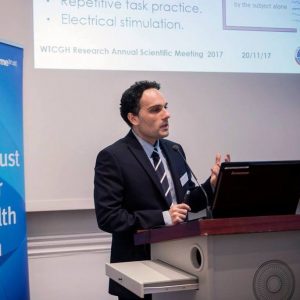
Dr. Andreu-Perez is a Reader in Computational Intelligence in Human Centred Artificial Intelligence at the School of Computer Science and Electronic Engineering, University of Essex (UoE). Prior joining UoE, Javier was research associate during 6 years at the Department of Computing, Institute of Global Health and Innovation, Imperial College London. He holds a PhD in Intelligent Systems from Lancaster University, MEng in Computer Science and MSc in Software Engineering from University of Granada. He was also visiting fellow at the Department of Surgery and Cancer, Faculty of Medicine, Imperial College London (ICL). He has contributed to a number of research projects funded by the EU, NHS, the UK’s Ministry of Defence (MoD), as well as the industry. He is a member of the IEEE Society in Computational Intelligence, has co-edited special issues in the area and published several highly cited papers in health informatics. He also serves as a member of several editorial boards of relevant journals computational intelligence and artificial intelligence. His main research interests are currently focused in neuroinformatics, artificial intelligence, machine learning, fuzzy systems, cognitive neuroscience, human-robot interaction, physiological sensing, computational neuroscience, health informatics, sensor informatics. Return to list
Dr. Doctor, Faiyaz – CSEE

 Dr. Faiyaz graduated with an honours degree in Computer Science and Artificial Intelligence from the University of Birmingham and an MSc in Artificial Intelligence and Agents. He then pursued a PhD in Computer Science at the University of Essex where my research topic was focused on adaptive fuzzy embedded agent approaches for ambient intelligent environments. Since 2017 he joined University of Essex as a Lecturer. Over the course of my career he has worked in both industrial and academia. His work has involved looking into interesting applications of computational intelligence for various real world problems such as smart environments, elderly care, energy optimization, information analysis and decision-making. His research interests include computational intelligence, fuzzy logic, applications of type-2 fuzzy logic, hybrid systems using fuzzy logic with genetic algorithms and neural networks, ambient intelligence, pervasive computing and intelligent buildings. Other areas of interest also include embedded agents and applications of computational intelligence for commerce, healthcare and more recently affective computing. Return to list
Dr. Faiyaz graduated with an honours degree in Computer Science and Artificial Intelligence from the University of Birmingham and an MSc in Artificial Intelligence and Agents. He then pursued a PhD in Computer Science at the University of Essex where my research topic was focused on adaptive fuzzy embedded agent approaches for ambient intelligent environments. Since 2017 he joined University of Essex as a Lecturer. Over the course of my career he has worked in both industrial and academia. His work has involved looking into interesting applications of computational intelligence for various real world problems such as smart environments, elderly care, energy optimization, information analysis and decision-making. His research interests include computational intelligence, fuzzy logic, applications of type-2 fuzzy logic, hybrid systems using fuzzy logic with genetic algorithms and neural networks, ambient intelligence, pervasive computing and intelligent buildings. Other areas of interest also include embedded agents and applications of computational intelligence for commerce, healthcare and more recently affective computing. Return to list
Dr. Filipetti, Maria Laura – Department of Psychology
 Dr. Filipetti completed his B.Sc. and M.Sc. in Developmental Psychology at University of Padua, Italy, where she specialised in typical and atypical cognitive development. In 2011, she was awarded with a Marie Curie Initial Training Network PhD Fellowship at the Centre for Brain and Cognitive Development, Birkbeck College. In 2016, she moved to University College London to further her expertise on self- and body-awareness across the lifespan, with a specific focus on affective touch. Maria Laura joined the Department of Psychology of University of Essex in Autumn 2017 as a lecturer. Her PhD project has focused on the development of body perception in infancy. During my PhD, she studied the precursors and neural underpinning of body perception in human newborns and infants, using behavioural techniques and functional Near Infrared Spectroscopy (fNIRS). She is now interested in investigating the developmental trajectories of self-recognition in children. She also has strong interest in adult research and aim to undertake research on the perceptual distinction between self and other in relation to specific social cognitive processes. Return to list
Dr. Filipetti completed his B.Sc. and M.Sc. in Developmental Psychology at University of Padua, Italy, where she specialised in typical and atypical cognitive development. In 2011, she was awarded with a Marie Curie Initial Training Network PhD Fellowship at the Centre for Brain and Cognitive Development, Birkbeck College. In 2016, she moved to University College London to further her expertise on self- and body-awareness across the lifespan, with a specific focus on affective touch. Maria Laura joined the Department of Psychology of University of Essex in Autumn 2017 as a lecturer. Her PhD project has focused on the development of body perception in infancy. During my PhD, she studied the precursors and neural underpinning of body perception in human newborns and infants, using behavioural techniques and functional Near Infrared Spectroscopy (fNIRS). She is now interested in investigating the developmental trajectories of self-recognition in children. She also has strong interest in adult research and aim to undertake research on the perceptual distinction between self and other in relation to specific social cognitive processes. Return to list
Dr. Garcia-Gancedo, Luis – GlaxoSmithKline
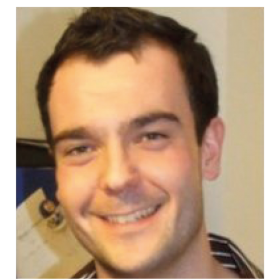 Luis Garcia-Gancedo received a MSci in Physics from the University of Oviedo (Spain) and a PhD in Electronic Engineering from the University of Brighton (UK). He joined the Engineering Department at the University of Cambridge in January 2009 as a Research Associate, working on the development of novel point-of-care sensors for disease diagnostics. In October 2010 Luis was awarded a Lectureship in Engineering at Newnham College (University of Cambridge) becoming Director of Studies in Engineering in January 2011. Luis joined GSK in 2014 and has since been working on the implementation of patient centric technologies in clinical studies. Currently he forms part of ‘Clinical Innovation and Digital Platforms’, a group that supports the design, implementation and evaluation of pilot programs of innovative digital technology solutions aimed at modernising GSK’s clinical trial process for the benefit of patients. Within the group, Luis leads the implementation of wearables and other patient centric sensor technologies in order to enable continuous or semi-continuous objective data collection (in-between clinical site visits). Our mid-to-long term vision is to remotely collect ‘real-world’ data that reflects a reasonable approximation of how study participants usually live their lives, ultimately enabling a better understanding of disease manifestation and a better assessment of drug efficacy. Return to list
Luis Garcia-Gancedo received a MSci in Physics from the University of Oviedo (Spain) and a PhD in Electronic Engineering from the University of Brighton (UK). He joined the Engineering Department at the University of Cambridge in January 2009 as a Research Associate, working on the development of novel point-of-care sensors for disease diagnostics. In October 2010 Luis was awarded a Lectureship in Engineering at Newnham College (University of Cambridge) becoming Director of Studies in Engineering in January 2011. Luis joined GSK in 2014 and has since been working on the implementation of patient centric technologies in clinical studies. Currently he forms part of ‘Clinical Innovation and Digital Platforms’, a group that supports the design, implementation and evaluation of pilot programs of innovative digital technology solutions aimed at modernising GSK’s clinical trial process for the benefit of patients. Within the group, Luis leads the implementation of wearables and other patient centric sensor technologies in order to enable continuous or semi-continuous objective data collection (in-between clinical site visits). Our mid-to-long term vision is to remotely collect ‘real-world’ data that reflects a reasonable approximation of how study participants usually live their lives, ultimately enabling a better understanding of disease manifestation and a better assessment of drug efficacy. Return to list
Dr. Alba García Seco de Herrera – CSEE
I a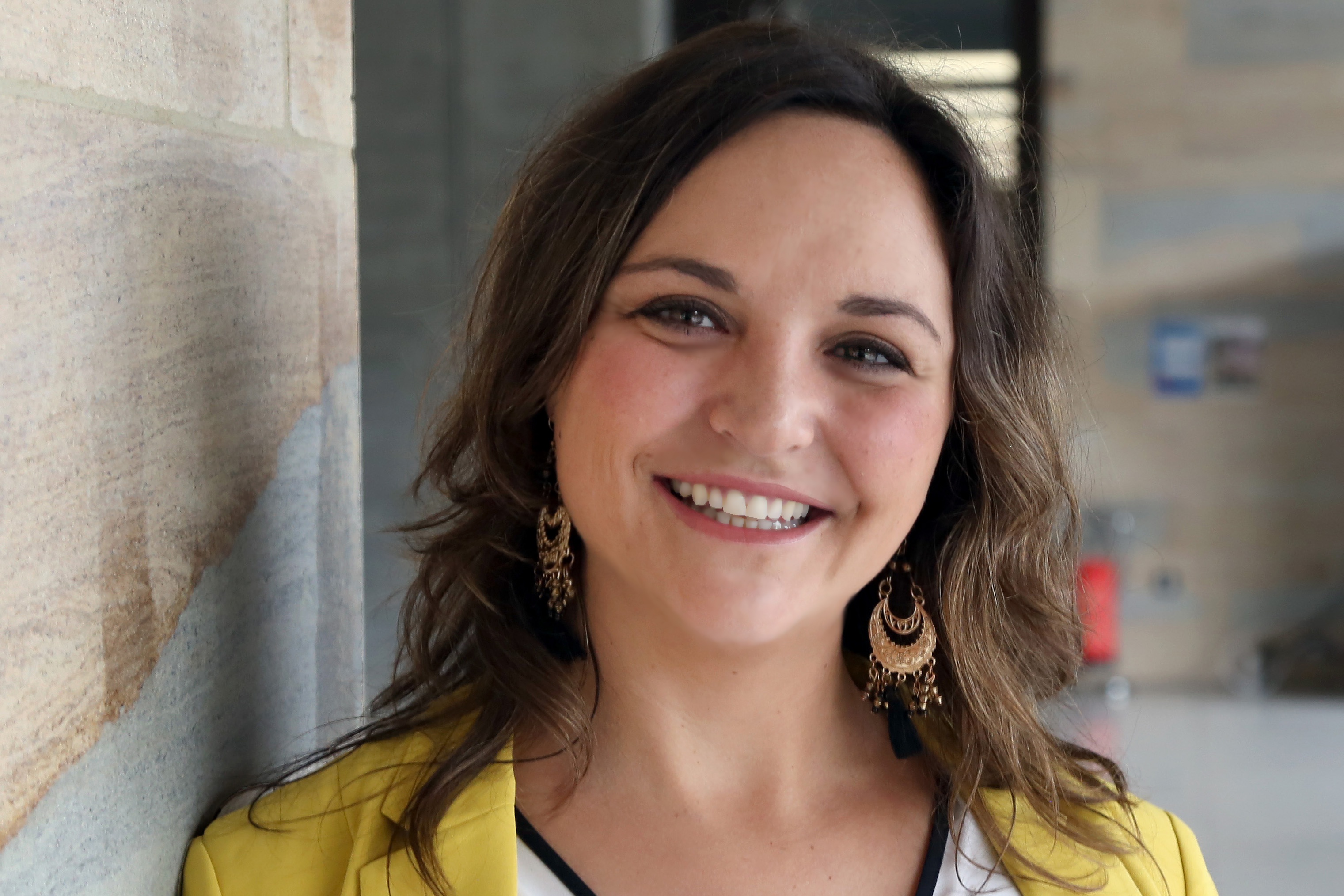 m a Lecturer at the School of the School of Computer Science and Electronic Engineering (CSEE) at the University of Essex, I held a postdoctoral fellow at the National Library of Medicine – National Institutes of Health (NLM/NIH), USA. I received my doctorate degree in Computer Science from the University of Geneva, Switzerland, in 2015. I received a Master’s in Science in Telemedicine and Bioengineering from the Technical University of Madrid in 2009 and a Diploma in Mathematics at the Complutense University in Madrid in 2008. My research interests lie primarily in the area of Computer Vision for Biomedical Imaging with a special focus on image retrieval and evaluation. I also cast the problem of image understanding as a cross-modality matching scenario in which visual content and textual information need to be combined.
m a Lecturer at the School of the School of Computer Science and Electronic Engineering (CSEE) at the University of Essex, I held a postdoctoral fellow at the National Library of Medicine – National Institutes of Health (NLM/NIH), USA. I received my doctorate degree in Computer Science from the University of Geneva, Switzerland, in 2015. I received a Master’s in Science in Telemedicine and Bioengineering from the Technical University of Madrid in 2009 and a Diploma in Mathematics at the Complutense University in Madrid in 2008. My research interests lie primarily in the area of Computer Vision for Biomedical Imaging with a special focus on image retrieval and evaluation. I also cast the problem of image understanding as a cross-modality matching scenario in which visual content and textual information need to be combined.
Dr. Gillmeister, Helge – Department of Psychology


Dr. Gillmeister completed a BSc in Psychology with Cognitive Science at University College London. She then worked with Prof Anthony Marcel at the MRC Cognition and Brain Sciences Unit in Cambridge, investigating tactile spatial attention and body representation in healthy observers and neuropsychological patients. This was followed by a PhD on the processing of vibrations (in touch and hearing) at Birkbeck College London, supervised by Prof Martin Eimer. She then returned to University College London to work with Prof Cecilia Heyes on the role of sensorimotor learning in the imitation of actions, subsequently worked with Dr Bettina Forster at the Cognitive Neuroscience Research Unit at City University London investigating tactile spatial attention and body representation in perception and action, and then joined the Department of Psychology here at Essex in 2009. She uses EEG and psychophysical methods to investigate how tactile and visual processing mechanisms contribute to body representation. She is a member of the British Association for Cognitive Neuroscience and the Experimental Psychology Society. She pursues research in the following topics: The bodily self, visual remapping of touch (“mirror touch”), visual body representation, eating and body dysmorphic disorders, obesity, healthy active ageing. Her research interest are in visual body representations, somatosensory processes, sensorimotor learning, mirror touch. Return to list
Dr. Gladwell, Valerie – School of Sport, Rehabilitation and Exercise Science
 Dr. Gladwell joined the Center for Sports & Exercise Science within the School of Biological Sciences in September 2000 as a Lecturer in Sports Science. She studied for my PhD entitled “Reflex mechanisms eliciting the changes in heart rate caused by isometric exercise” under the guidance of Professor John Coote in the Medical School at the University of Birmingham. She gained her PhD in 2001. Prior to this She studied for my undergraduate degree in Biomedical Science also at the University of Birmingham. She is also a Senior Fellow of the Higher Education Academy. In 2009 She was awarded a prestigious ESRC interdisciplinary career personal fellowship(£300,000)- Green Exercise: The combination of physical activity in a natural environment. She was also awarded a British Heart Foundation PhD studentship in 2010 who successfully completed his PhD in the area of Green Exercise. This project examines not only physiological and psychological responses but also examines biochemical changes that are occurring in the body in response to stress. Her research interests are currently focused in the following areas: Physical activity for health, Green Exercise, Breaking up Sedentary Time, Cardiovascular Physiology, Workplace wellbeing, Behavioural change theories into practice for physical activity for health. Return to list
Dr. Gladwell joined the Center for Sports & Exercise Science within the School of Biological Sciences in September 2000 as a Lecturer in Sports Science. She studied for my PhD entitled “Reflex mechanisms eliciting the changes in heart rate caused by isometric exercise” under the guidance of Professor John Coote in the Medical School at the University of Birmingham. She gained her PhD in 2001. Prior to this She studied for my undergraduate degree in Biomedical Science also at the University of Birmingham. She is also a Senior Fellow of the Higher Education Academy. In 2009 She was awarded a prestigious ESRC interdisciplinary career personal fellowship(£300,000)- Green Exercise: The combination of physical activity in a natural environment. She was also awarded a British Heart Foundation PhD studentship in 2010 who successfully completed his PhD in the area of Green Exercise. This project examines not only physiological and psychological responses but also examines biochemical changes that are occurring in the body in response to stress. Her research interests are currently focused in the following areas: Physical activity for health, Green Exercise, Breaking up Sedentary Time, Cardiovascular Physiology, Workplace wellbeing, Behavioural change theories into practice for physical activity for health. Return to list
Prof. Dr. Green, Gillian – School of Health and Social Care
 Gill Green is a Medical Sociologist based in the School of Health and Human Sciences. She has been researching social aspects of long-term illness since the early 1990s conducting research with people living with a range of long term conditions. She has published extensively on the pyshcosocial impact of HIV and the impact it has on identity and more recently upon people with other chronic illnesses. Her most recent book ‘The End of Stigma? Changes in the Social Experience of Long-Term Illness’ was published by Routledge in 2009. Gill has also conducted a number of research projects related to other socially excluded groups. Her PhD focused on the housing careers of residents living in low-income settlements in Bolivia and more recently she has researched the lived experiences of offenders with mental health problems. Gill is Director of the National Institute of Health Research Research Design Service for the East of England. In this capacity, she liaises with health researchers throughout the East of England to develop applied health research based upon the ideas and experience of clinicians and service users supported with methodological academic rigour. She also works closely with with national and regional bodies promoting patient and public involvement in research. Return to list
Gill Green is a Medical Sociologist based in the School of Health and Human Sciences. She has been researching social aspects of long-term illness since the early 1990s conducting research with people living with a range of long term conditions. She has published extensively on the pyshcosocial impact of HIV and the impact it has on identity and more recently upon people with other chronic illnesses. Her most recent book ‘The End of Stigma? Changes in the Social Experience of Long-Term Illness’ was published by Routledge in 2009. Gill has also conducted a number of research projects related to other socially excluded groups. Her PhD focused on the housing careers of residents living in low-income settlements in Bolivia and more recently she has researched the lived experiences of offenders with mental health problems. Gill is Director of the National Institute of Health Research Research Design Service for the East of England. In this capacity, she liaises with health researchers throughout the East of England to develop applied health research based upon the ideas and experience of clinicians and service users supported with methodological academic rigour. She also works closely with with national and regional bodies promoting patient and public involvement in research. Return to list
Prof. Dr. Hagras, Hani – CSEE

Prof Hagras, received the B.Sc. and M.Sc. degrees in electrical engineering from Alexandria University, Alexandria, Egypt, and the Ph.D. degree in computer science from the University of Essex, Colchester, U.K. He is a Professor in the School of Computer Science and Electronic Engineering, Director of the Computational Intelligence Centre and the Head of the Fuzzy Systems Research Group in the University of Essex, UK. He has authored more than 300 papers in international journals, conferences and books. He is a Fellow of the Institute of Electrical and Electronics Engineers (IEEE) and he is also a Fellow of the Institution of Engineering and Technology (IET (IEE). He was the Chair of IEEE Computational Intelligence Society (CIS) Senior Members Sub-Committee. His research has won numerous prestigious international awards where most recently he was awarded by the IEEE Computational Intelligence Society (CIS), the 2013 Outstanding Paper Award in the IEEE Transactions on Fuzzy Systems and he was also awarded the 2006 Outstanding Paper Award in the IEEE Transactions on Fuzzy Systems. He is an Associate Editor of the IEEE Transactions on Fuzzy Systems. He is also an Associate Editor of the International Journal of Robotics and Automation, the Journal of Cognitive Computation and the Journal of Ambient Computing and Intelligence. He is a member of the IEEE Computational Intelligence Society (CIS) Fuzzy Systems Technical Committee and IEEE CIS conference committee. Prof. Hagras chaired several international conferences where he will act as the Programme Chair of the 2017 IEEE International Conference on Fuzzy Systems, Naples, Italy, July 2017 and he served as the General Co-Chair of the 2007 IEEE International Conference on Fuzzy systems London. His major research interests are in computational intelligence, notably type-2 fuzzy systems, fuzzy logic, neural networks, genetic algorithms, and evolutionary computation. His research interests also include ambient intelligence, pervasive computing and intelligent buildings. He is also interested in embedded agents, robotics and intelligent control. Return to list
Dr. Kafash Hoshiar, Ali – CSEE

Since 2009, Dr Hoshiar has been working on medical robotics (publishing 40+ papers). He developed the world’s first soft continuum microrobot. For modelling and simulation, he extensively works on computational artificial intelligence to design and control small-scale robots (a field called physical intelligence). He has been working on small-scale robotics (actuation, sensing and control), combing micro/nanotechnology, computational intelligence and robotics to cure Alzheimer, Cancer and Heart diseases. In 2019, he joined the University of Essex as a Lecturer in Mechatronics and has active collaborations with the STORM Lab University of Leeds, Intelligent medical robotics lab in GIST (S. Korea), and the world’s pioneer microrobotics research centre DGIST (S. Korea)-ETH (Switzerland). Return to list
Dr. Rigato, Silvia – Department of Psychology
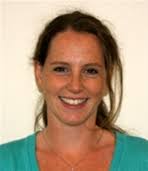
 Dr. Rigato completed her BSc and MSc in Developmental and Educational Psychology at University of Padua, Italy. She then worked with Dr. Teresa Farroni at the Hospital of Monfalcone (Trieste), Italy, investigating face perception in newborns. She subsequently moved to London where She obtained her PhD at the Centre for Brain and Cognitive Development, Birkbeck College, supervised by Professor Mark Johnson. She then spent 3 years working as a postdoc at the Goldsmiths InfantLab, directed by Dr. Andy Bremner, investigating the development of the neural basis of tactile localisation. Later, she joined the Department of Psychology at the University of Essex in Autumn 2013 as a lecturer. Her broad research interest is in the development of perceptual and cognitive abilities in infancy. In particular, her research focuses on: face perception and processing in infancy, the development of body representation and tactile localisation, the development of the neural basis of shared touch. Return to list
Dr. Rigato completed her BSc and MSc in Developmental and Educational Psychology at University of Padua, Italy. She then worked with Dr. Teresa Farroni at the Hospital of Monfalcone (Trieste), Italy, investigating face perception in newborns. She subsequently moved to London where She obtained her PhD at the Centre for Brain and Cognitive Development, Birkbeck College, supervised by Professor Mark Johnson. She then spent 3 years working as a postdoc at the Goldsmiths InfantLab, directed by Dr. Andy Bremner, investigating the development of the neural basis of tactile localisation. Later, she joined the Department of Psychology at the University of Essex in Autumn 2013 as a lecturer. Her broad research interest is in the development of perceptual and cognitive abilities in infancy. In particular, her research focuses on: face perception and processing in infancy, the development of body representation and tactile localisation, the development of the neural basis of shared touch. Return to list
Prof. Dr. Vickers, Anthony – CSEE
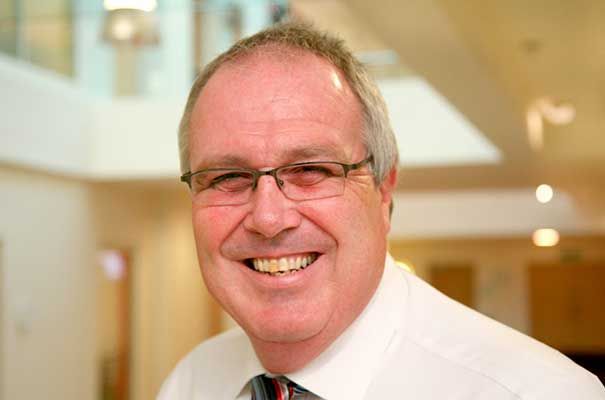 Prof. Anthony Vickers is a Professor in Physics within the School of Computer Science and Electronic Engineering and also Head of the School (HoD). He has worked at the University for 32 years, in the Department of Physics, the Department of Electronic Systems Engineering, and now in the School of Computer Science and Electronic Engineering (CSEE). He has held many academic positions within those departments, including Head of Department (ESE), Director of Education, as well as a University role as Head of Study Abroad. His research activity is mainly in the physics of optoelectronic materials and devices, focusing on novel materials for photodetectors and Terahertz emitters/detectors. Photodetectors are the receiving element of fibre optic systems. Our research aims to develop new more efficient detectors to reduce costs and increase sustainability. Terahertz emitters and detectors are used in the development of instruments to study proteins for future drugs. The aim is to be able to design drugs, through simulation and experimental studies, to reduce drug costs and make them more widely available. Return to list
Prof. Anthony Vickers is a Professor in Physics within the School of Computer Science and Electronic Engineering and also Head of the School (HoD). He has worked at the University for 32 years, in the Department of Physics, the Department of Electronic Systems Engineering, and now in the School of Computer Science and Electronic Engineering (CSEE). He has held many academic positions within those departments, including Head of Department (ESE), Director of Education, as well as a University role as Head of Study Abroad. His research activity is mainly in the physics of optoelectronic materials and devices, focusing on novel materials for photodetectors and Terahertz emitters/detectors. Photodetectors are the receiving element of fibre optic systems. Our research aims to develop new more efficient detectors to reduce costs and increase sustainability. Terahertz emitters and detectors are used in the development of instruments to study proteins for future drugs. The aim is to be able to design drugs, through simulation and experimental studies, to reduce drug costs and make them more widely available. Return to list
